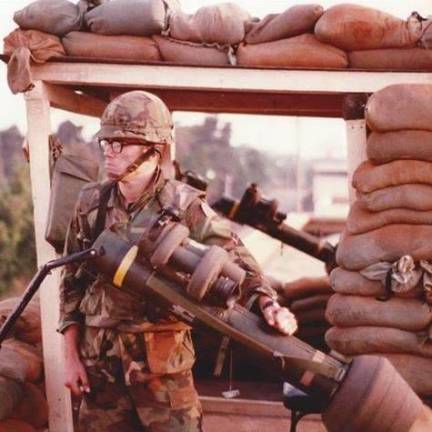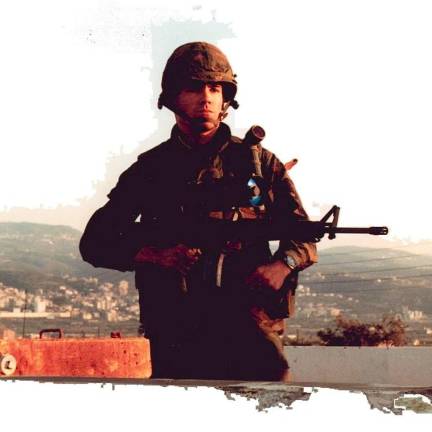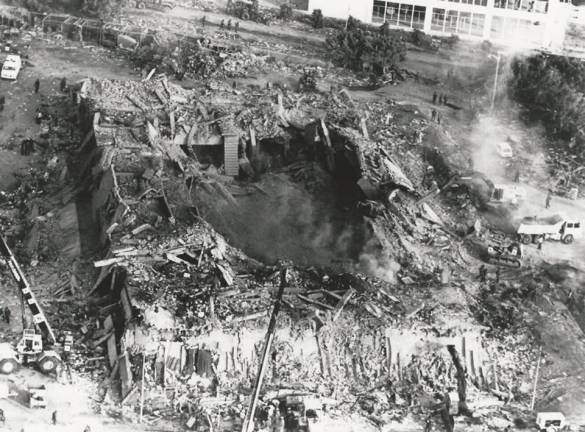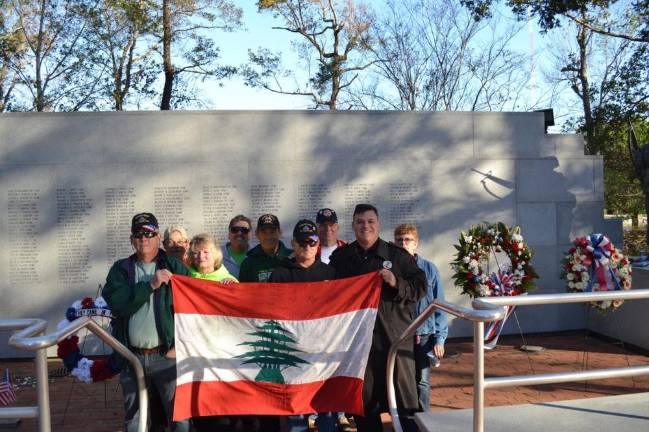40 years since their ultimate sacrifice
SPARTA. Former Marine sergeant to attend N.C. ceremony in memory of the men killed in the Beirut barracks bombings and the U.S. invasion of Grenada.




Sparta resident Angel Diaz Jr., a former U.S. Marine Corps infantry sergeant, will travel to Camp Lejeune, N.C., this weekend to mark the 40th anniversary of the Marine barracks bombing in Beirut, Lebanon, and the U.S. invasion of Grenada.
A ceremony is planned to remember the men who died during the two events.
Diaz was a M47 Dragon anti-tank missile gunner in both Beirut and Grenada.
He was awarded the Navy Achievement Medal for his service on Grenada translating the Spanish of 18 Cuban prisoners and as a Dragon Gunner for 2nd battalion 8th Marines of the 22nd Marine Amphibious Unit.
After serving in Grenada, Diaz was sent to Beirut as part of the peacekeeping force.
He will represent Sussex County at Camp Lejeune, where he will reunite with his fellow Marines in the Beirut Veterans of America.
Suicide bombers
At 6:22 a.m. Oct. 23, 1983, a Hezbollah suicide truck bomber entered the parking lot at the Beirut International Airport, which was adjacent to the barracks of the 1st Battalion 8th Marines, an infantry battalion of the 2nd Marine Division based out of Camp Lejeune. The servicemen were asleep at the time of the attack.
The Marines were expecting a water delivery that morning. The water truck was hijacked and it was filled with compressed gas and high explosives, Diaz explained.
The night before the attack, the Marines had a United Service Organizations (USO) show in front of the barracks, he said.
Every Beirut veteran’s motto is to remember these men and the ultimate sacrifice they made for Middle East peace, he added.
“They sacrificed everything: their future, their chance to get married, have children and families of their own. It is right that they be remembered in history for their ultimate sacrifice.”
A few minutes after the bombing at the barracks, another truck bomb detonated a few kilometers away at the nine-story Drakkar building in Beirut, where the French peace-keeping contingent was stationed. This surprise attack killed 55 paratroopers from the 1st Parachute Chasseur Regiment and three paratroopers of the 9th Parachute Chasseur Regiment. Fifteen were injured.
The American and French military personnel who were killed were members of the Multinational Force (MNF) keeping the peace in Beirut after Israel’s invasion of Lebanon in 1982.
The five-nation MNF consisted of the United States, France, Italy, United Kingdom and the Lebanese Armed Forces.
The attacks killed 241 U.S. military personnel, 58 French soldiers, six civilians and two attackers.
The Lebanon-based terrorist group Hezbollah was involved in the attacks, which were backed by Iran, Diaz explained.
“It was a coordinated attack to destabilize the region and expel all peacekeeping forces from Lebanese soil.”
On April 18, 1983, the U.S. Embassy had been partially destroyed by a truck bomb killing 63 people, including 17 Americans.
Grenada invasion
Grenada, an island nation in the Caribbean, gained independence from the United Kingdom in 1974. Prime Minister Maurice Bishop did not wish to form an alliance with Fidel Castro in the communist nation in Cuba.
Grenada Gen. Bernard Coard had Bishop assassinated and took control of the government.
At sunrise Oct. 25, 1983, a few days after the attacks in Beirut, President Ronald Reagan ordered almost 2,000 U.S. Army and Marine Corps members to invade Grenada to liberate the island and capture Coard. This order was to secure the safety of 1,000 Americans in Grenada, many who were attending medical school.
The invasion of Grenada, known by the U.S. military as Operation Urgent Fury, included troops from the United States and the Caribbean islands.
The invasion included the 1st and 2nd battalions of the U.S. Army’s 75th Ranger Regiment; the 82nd Airborne Division; elements of the 2nd Battalion, 8th Marines; Army Delta Force; Navy Seals; and additional forces totaling almost 8,000 soldiers.
“Today Grenada is a democracy because of the 19 U.S. servicemen who died and the hundreds of wounded members from the invasion for the island liberation,” said Diaz.
The first day of the invasion now is celebrated yearly as Thanksgiving Day on Grenada, he noted.
Coming home
On Feb. 7, 1984, Reagan announced the end of the peacekeeping force and Feb. 26, 1984, the last U.S. Marines left Beirut.
The day Diaz left Beirut for the USS Guam was the day he knew he would reach his 21st birthday.
“The Marine Corps is a different breed of fighter. As a Marine, you never give up and you never surrender,” he said.
Every year at 6:22 a.m. on Oct. 23 at Camp Lejeune, families, friends and fellow Marines hold a memorial service and read the names of Lebanon and Grenada veterans who died. There are 273 names on the wall with the words, “They came in peace.”
Gen. Alfred Gray always speaks at the ceremony. He is beloved by the Marines and takes part in the ceremony to show his respect for his fallen men.
Diaz attends a ceremony every year at the Veterans of Foreign Wars Post 7248 in Sparta on Veterans Day so the world will never forget what happened in Grenada and Beirut.
After the ceremony in North Carolina, Diaz will bring a National Flag of Lebanon with signatures of Beirut survivors and dignitaries from the federal and New Jersey governments to the National Museum of the Marine Corps, which is in Triangle, Va.
“It was the greatest adventure of my lifetime to be a United States Marine and be a small part of Urgent Fury and a peacekeeper in Beirut,” he said.
CORRECTION: An earlier version of this article incorrectly said the 1983 Marine barracks bombing was the largest non-nuclear explosion in history. Actually, a 2020 explosion at a fertilizer storage facility in Beirut was the largest non-nuclear explosion in history. We regret the error.